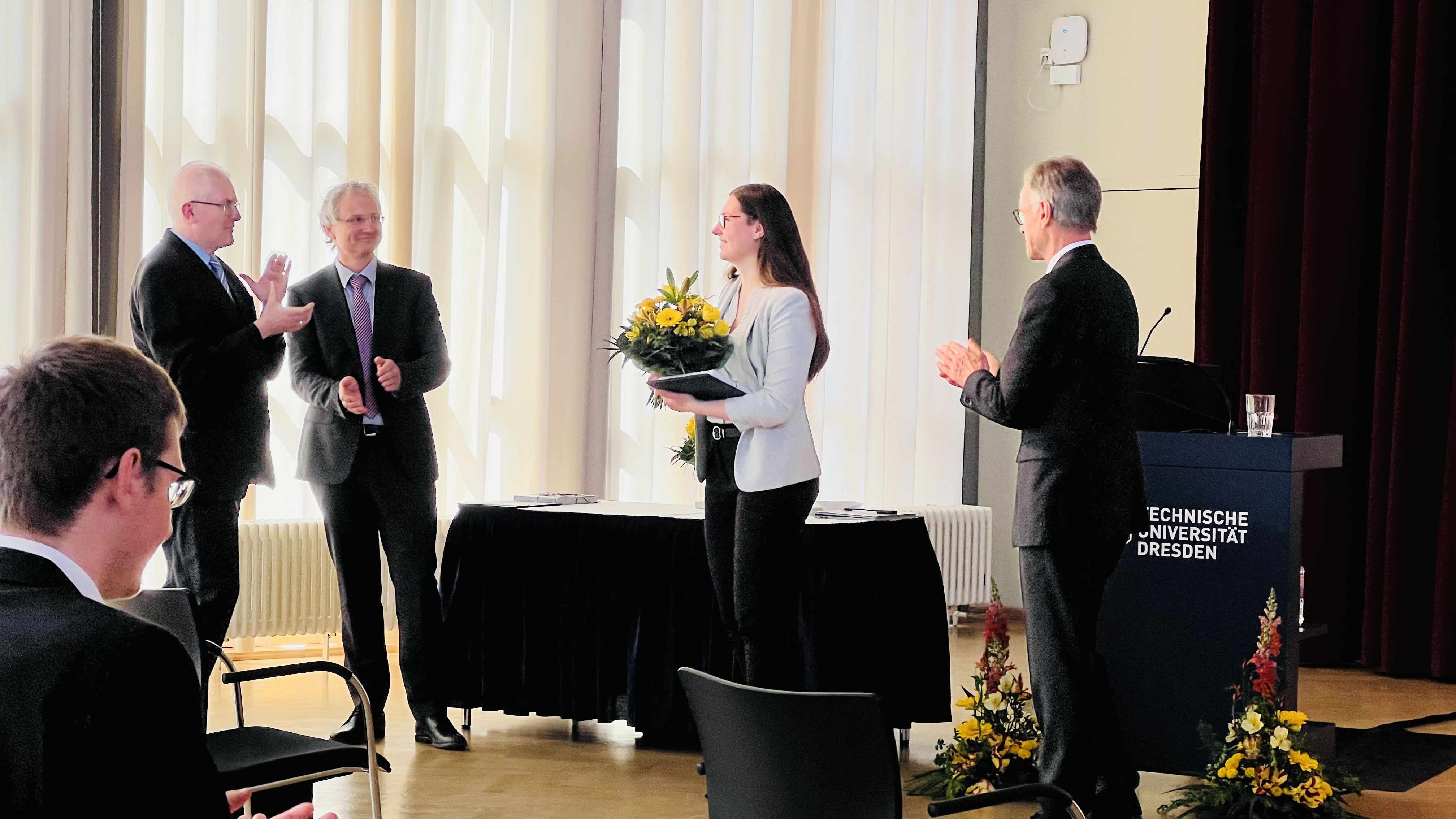

Natalie got today the Gisela and Erwin Sick Foundation School of ING Prize for Sensor and Measurement System Technology. Congrats Natalie!
In her PhD project, Natalie developed a sensor platform that combines various electrochemical measurement methods to detect biomedically relevant diagnostic markers in real time and in highly complex sample materials. Natalie successfully tackled the typical challenges of this field of research, which have only been partially solved to date: low signals due to the low charge-to-size ratio of most diagnostically relevant markers, the shielding of charges due to the high concentration of dissolved ions and interfering signals caused by the samples such as whole blood. By developing and adapting mathematical models, she was able to predict which biochemical surface modifications of the sensors under investigation have to be performed in order to achieve maximized and meaningful measurement signals despite the charge shielding. She was able to apply these theoretical models very successfully in real sensors and with challenging sample materials such as whole blood and undiluted serum, thus demonstrating the high practical relevance of her work.
The Gisela and Erwin Sick Foundation funds this university prize for measurement technology to promote research in engineering and natural sciences. The prize has an endowment of 3,000 euros. The jury places particular emphasis on scientific advancement and on the relevance of the research findings for practical measurement work – particularly in process, factory and logistics automation, biomedicine and environmental protection. The jury comprises representatives of the company SICK AG, the Gisela and Erwin Sick Foundation, and the relevant faculties of TU Dresden.
Lectio Magistralis! pic.twitter.com/MYCnyx8p7F
— NanoMat Chair at TUD (@nanoDresden) April 29, 2022


Natalie got today the Gisela and Erwin Sick Foundation School of ING Prize for Sensor and Measurement System Technology. Congrats Natalie!
In her PhD project, Natalie developed a sensor platform that combines various electrochemical measurement methods to detect biomedically relevant diagnostic markers in real time and in highly complex sample materials. Natalie successfully tackled the typical challenges of this field of research, which have only been partially solved to date: low signals due to the low charge-to-size ratio of most diagnostically relevant markers, the shielding of charges due to the high concentration of dissolved ions and interfering signals caused by the samples such as whole blood. By developing and adapting mathematical models, she was able to predict which biochemical surface modifications of the sensors under investigation have to be performed in order to achieve maximized and meaningful measurement signals despite the charge shielding. She was able to apply these theoretical models very successfully in real sensors and with challenging sample materials such as whole blood and undiluted serum, thus demonstrating the high practical relevance of her work.
The Gisela and Erwin Sick Foundation funds this university prize for measurement technology to promote research in engineering and natural sciences. The prize has an endowment of 3,000 euros. The jury places particular emphasis on scientific advancement and on the relevance of the research findings for practical measurement work – particularly in process, factory and logistics automation, biomedicine and environmental protection. The jury comprises representatives of the company SICK AG, the Gisela and Erwin Sick Foundation, and the relevant faculties of TU Dresden.
Lectio Magistralis! pic.twitter.com/MYCnyx8p7F
— NanoMat Chair at TUD (@nanoDresden) April 29, 2022